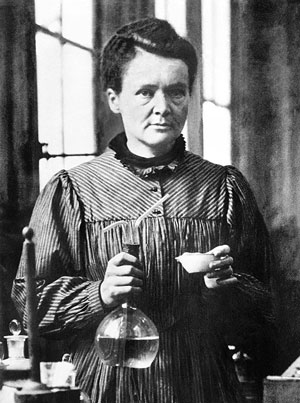 Marie Sklodowska-Curie Actions (MSCA)
Marie Sklodowska-Curie Actions (MSCA)
|
|
- Marie Sklodowska-Curie Actions (MSCA)
-

“From January 2014, the Marie Curie Actions will be renamed the Marie Skłodowska-Curie actions (MSCA). They come under the “Excellent Science” pillar of Horizon 2020 and will award 6,162 million euro over the period 2014-2020. The objective of the MSCA is to support the career development and training of researchers – with a focus on innovation skills – in all scientific disciplines through worldwide and cross-sector mobility. For this, the MSCA provide grants at all stages of researchers’ careers, from PhD candidates to highly experienced researchers, and encourage transnational, intersectoral and interdisciplinary mobility. The MSCA will become the main EU programme for doctoral training, funding 25 000 PhDs.
Endowing researchers with new skills and a wider range of competences, while offering them attractive working conditions, is a crucial aspect of the MSCA. In addition to mobility between countries, the MSCA also seek to break the real and perceived barriers between academic and other sectors, especially business. The MSCA follow a “bottom-up” approach, i.e. individuals and organisations working in any area of research can apply for funding. Several MSCA initiatives promote the involvement of industry etc. in doctoral and post-doctoral research.”
- Repeat project
-
REP-EAT is a doctoral project aimed at training a new generation of creative, entrepreneurial and innovative Early-Stage Researchers (ESRs) with a wide set of technical and transferable skills required to convert knowledge into products, services for economic and social benefit
.
-
+
-
SCIENTIFIC AIMS
-
The 12 REP-EAT
research projects
are
focused
on
the
interdisciplinary
domain of
food
and
healthy diet
to
deepen
the impact of
food quality
on
reproductive health (REP) and
eating disorders
(
EAT.
-
+
-
INNOVATIVE ASPECT
-
The REP-EAT programme is powered by an interdisciplinary and multi-sectorial community of experts. The advantages of this large scientific and entraprueneural network are to share with ESRs scientific advancements and knowledge putting the right tools in place to:
- Orient public and private professional actions toward improving prevention of reproductive health.
- Develop correct dietary and eating practices required to contrast ED,
- Develop new food products that meet specific demands (health, lifestyle).
- Enhance the transfer to society of the beneficial factors identified in the previous points by training qualified professionals (ESR awarded) with the knowledge and entrepreneurial capacity to create innovative companies (e.g. spin-off or start-up).
- Develop an efficient strategy for the dissemination of the achievements and for creating awareness among the general public of their implications for citizens and society.
-
+
-
EXPECTED RESULTS
-
- Identification, characterization and biotechnological use of bioactive compounds, nutraceuticals, and beneficial microbes.
- Understanding on the role of food on health and eating disorders and development of new technologies to improve high quality and/or innovative products and ingredients for a better diet and human well being.
- Study the reciprocal interaction of the nutraceuticals, food-associated microorganisms and toxic food compounds in modulating their bioavailability at level of cell and body systems.
- Definition of their effects on RD and ED on experimental models.
|
Rep-Eat
H2020-MSCA-COFUND-2015
University of Teramo - Via Renato Balzarini 1
64100 - Teramo (TE) - Italy
repeat@unite.it - Private Area
REP_EAT MSCA Co-funding of regional, national and international programmes (COFUND) HORIZON 2020” – Grant Agreement N. 713714.CUP: C47B16000360007





